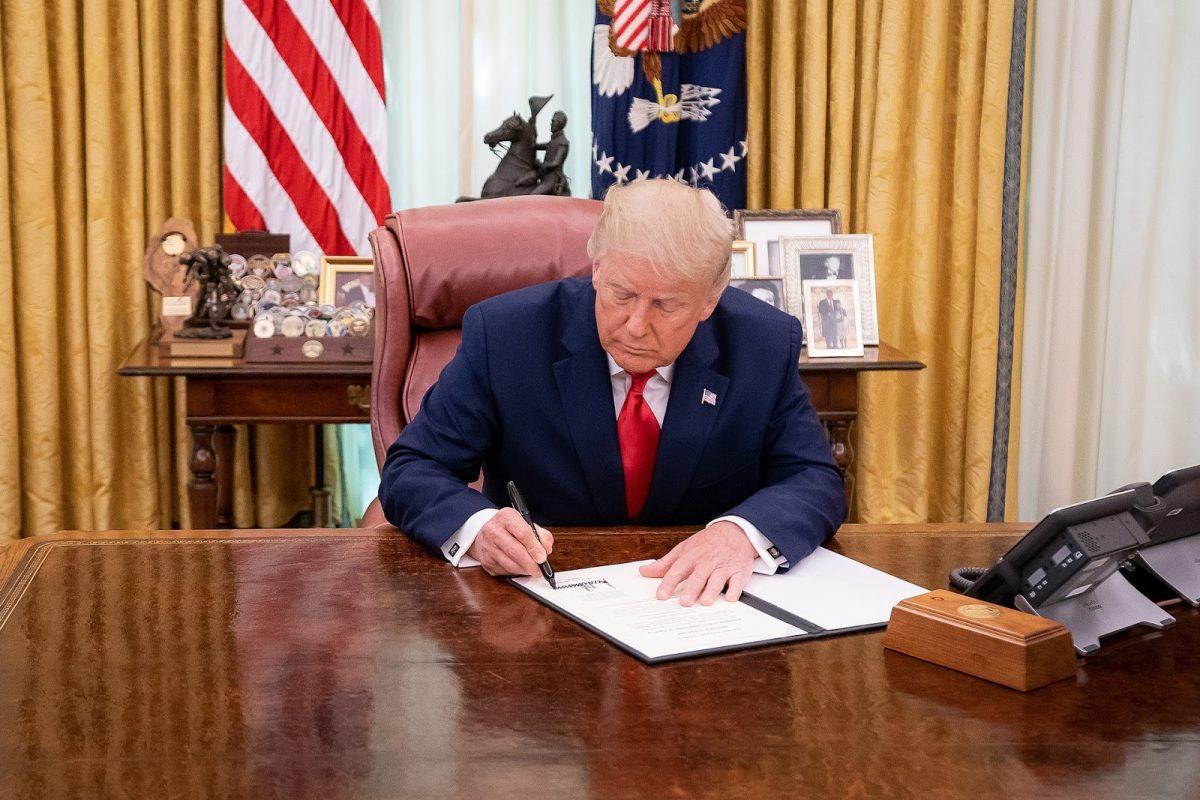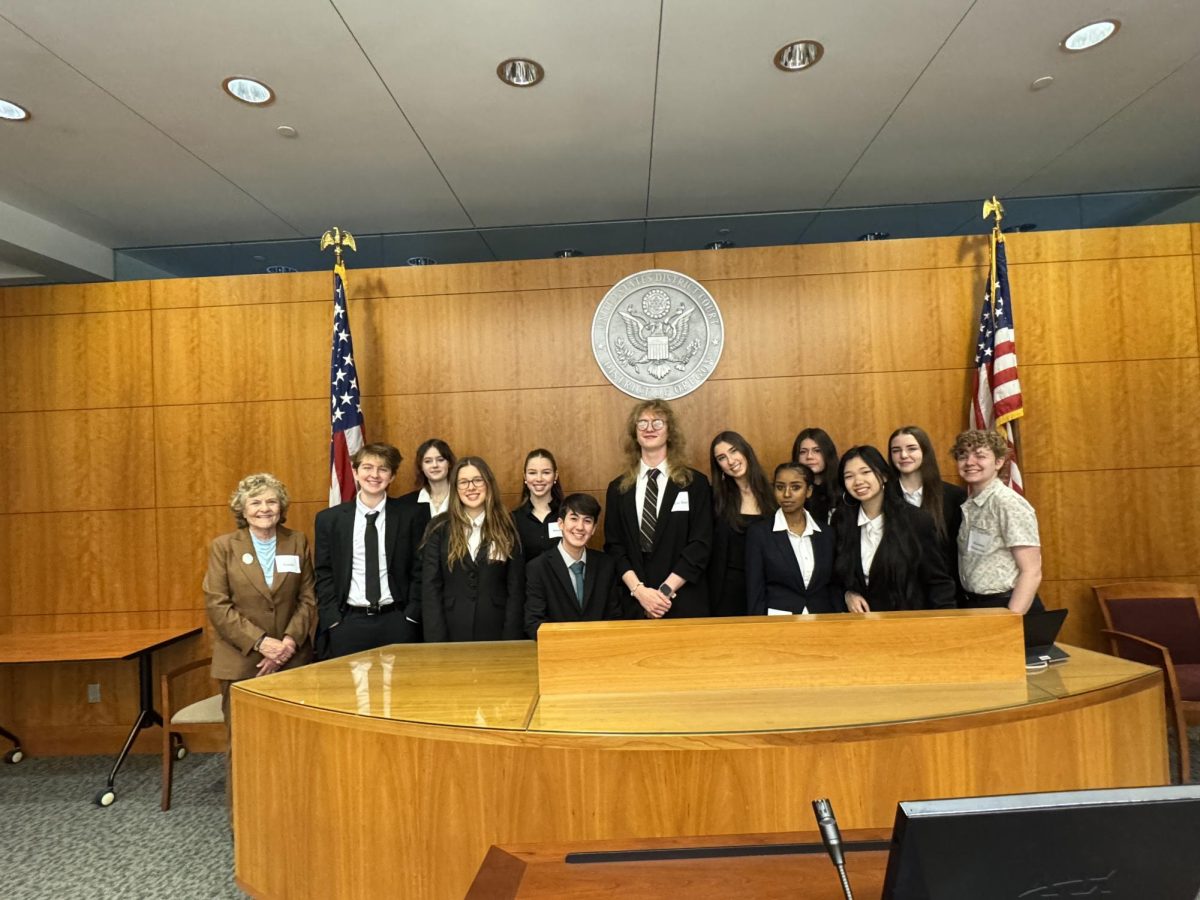During his final weeks in office, President Donald Trump has made extensive use of his power to pardon. It’s not uncommon for presidents to grant numerous pardons at the end of their terms, and in fact, Trump’s total acts of clemency (94) number fewer than those of many recent presidents (Obama notably issued 1,927 over his 8 year tenure). But Trump’s recent picks have sparked some controversy. On December 22 and 23, he granted a total of 41 pardons, ranging from former Congress members to low-level drug offenders, and he may have plans to issue more before his presidency ends.
The ability to give clemency comes directly from the US Constitution, which states that the president “shall have Power to grant Reprieves and Pardons for Offenses against the United States.” According to Franklin Government teacher David Marsh, this power is given to the president as a check on the function of the judiciary. “It’s a way to show forgiveness. Or to right wrongs, in a way.” As it stands, this power has few limits, and sitting presidents have the ability to overturn any federal convictions they see fit, with the sole exception of impeachment-related cases. They may also issue commutations, which reduce sentences but do not alter convictions. Once an individual has been pardoned, the act cannot be revoked, and the individual can no longer be tried or punished for that crime. However, Marsh stressed that this does not necessarily convey innocence. “Usually there are some interesting strings attached,” he stated. “Really the best way to describe it is crime forgiveness…for the most part, it comes with an admission of guilt.”
Trump’s use of the pardon power has been somewhat unconventional. Once it became clear that he had been voted out of office, a rush of pardon requests flooded the White House, with individuals attempting to leverage personal connections with the president as they clamored to reap the benefits of a Trump pardon. Notable recent pardon recipients include four individuals tied to the Mueller investigation—Paul Manafort, Roger Stone, George Papadopoulos, and Alex van der Zwaan—as well as Charles Kushner, the father of Trump’s son-in-law. Trump has also granted clemency to three former Congress members involved in corruption scandals, and four former guards with the private military contractor Blackwater who were convicted in the killings of Iraqi civilians. In the latter case in particular, the president has faced criticism for following the viewpoints of conservative media outlets over the recommendations of attorneys when making pardon decisions. Some have also attacked him for awarding pardons principally to those in his personal circles, but these acts of clemency are permissible under his constitutional power.
One of the largest questions was whether Trump would preemptively pardon aides or close family members. Although pardons generally occur after a conviction has occurred, “preemptive” pardons, which happen before any formal trial or judicial proceeding, are not unheard of. Richard Nixon famously received a preemptive pardon, protecting him from prosecution of any crimes he may have committed during his presidency. More than typical pardons, preemptive pardons can cover a wide range of actions. Marsh described them as “loose” protections that grant broader immunity. If Trump did decide to issue this form of clemency, it would mean that those in his close circle could be exempted from punishment for a variety of crimes.
While preemptive pardons have been found to be within the president’s powers, Trump has also insinuated that he may consider pardoning himself, an act which would place him in completely uncharted legal territory. Experts are not positive whether a preemptive self-pardon would be constitutionally permissible, as it has never before been attempted by any president. Franklin Constitution team member Wyatt Baker (12), who has been studying this topic recently in preparation for a regional competition this month, believes that the uncertainty could give Trump an advantage. “The fact that this has never been done makes it a real question: is it possible? And we won’t really know unless [Trump] tries it.” Some worry about the precedent that would be set by allowing leaders to free themselves from guilt; as Marsh stated, “it’s almost like a ticket to do whatever you want with zero repercussions.” It is important to note, though, that presidential pardons do not cover culpability for state crimes, and only give protection from federal prosecution.
As of January 12, the time of writing, Trump has not yet issued a self-pardon, but sources close to him state that he continues to consider this option as an avenue for protection against criminal prosecution after leaving office. And calls for investigations into Trump’s pardon choices, in particular looking into allegations of bribery, have already begun. Some believe that this controversy has sparked a larger reckoning and revealed deeper-set issues that must be addressed. Many are questioning how clemency ought to function going forward, and both reform or all-out removal of the power have been suggested. “Even at the nation’s founding, there was discussion about if it was a good idea to give the president that much power, because it has the capacity to be abused so easily,” Baker stated. “In my view, the pardon should be meant mainly for people who have already been sentenced, especially for minor crimes.” Marsh’s perspective was even more extreme, saying, “personally, I think [the pardon] needs to go away. For all the good it does, it can cause so much harm as well.” This renewed debate over clemency is just one more piece of evidence that, although Trump’s time in office is coming to a close, the impacts of his actions will continue to be felt for many years to come.

































